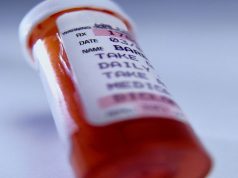Here are what the editors at HealthDay consider to be the most important developments in Allergy for February 2018. This roundup includes the latest research news from journal articles, as well as the FDA approvals and regulatory changes that are the most likely to affect clinical practice.
Early Studies Often Show Exaggerated Treatment Effect
TUESDAY, Feb. 27, 2018 (HealthDay News) — Trials to evaluate drugs or devices used to treat chronic medical conditions that are published early in the chain of evidence often show an exaggerated treatment effect compared with subsequent trials, according to research published online Feb. 21 in the Mayo Clinical Proceedings.
Female Infertility Tied to Asthma Managed With Rescue Inhalers
TUESDAY, Feb. 27, 2018 (HealthDay News) — Women with current asthma who use intermittent reliever treatment with short-acting beta-agonists have reduced fertility, according to a study published online Feb. 14 in the European Respiratory Journal.
Abstract
Full Text (subscription or payment may be required)
Recommendations for Optimizing Hidden Curriculum in Medicine
MONDAY, Feb. 26, 2018 (HealthDay News) — In a position paper published online Feb. 27 in the Annals of Internal Medicine, the American College of Physicians (ACP) presents recommendations for optimizing clinical learning environments by fostering a positive hidden curriculum in medicine.
Abstract/Full Text (subscription or payment may be required)
Editorial (subscription or payment may be required)
Understanding Rx Nonadherence Can Improve Adherence
MONDAY, Feb. 26, 2018 (HealthDay News) — Understanding nonadherence in patients and encouraging a change in attitude toward patients and their medication can improve medication adherence, according to a report published by the American Medical Association (AMA).
Artificial Intelligence May Help Prevent Physician Burnout
FRIDAY, Feb. 23, 2018 (HealthDay News) — Artificial intelligence (AI), in which computers can be trained to recognize patterns in large quantities of data, may be able to reduce physicians’ burdens, saving them time and energy, according to a report published in Medical Economics.
CDC: No Change in Percentage of Uninsured in U.S. From ’16 to ’17
THURSDAY, Feb. 22, 2018 (HealthDay News) — The percentage of uninsured U.S. persons of all ages did not change significantly from 2016 to the first nine months of 2017, according to a report published online Feb. 22 by the National Center for Health Statistics.
Burnout Found Prevalent Among Doctors in Single Health System
TUESDAY, Feb. 20, 2018 (HealthDay News) — Burnout is prevalent among physicians, affecting over one-third of physicians in a single health system, and is associated with health care delivery, according to a research letter published online Feb. 19 in JAMA Internal Medicine.
Abstract/Full Text (subscription or payment may be required)
Patients Want Physicians to Have Greater Connectivity
THURSDAY, Feb. 15, 2018 (HealthDay News) — Most patients want greater connectivity, online tools and text messaging, as well as more time with their physicians, according to a report published in Medical Economics.
Four Best Practices Outlined to Prevent Health Care Cyberattacks
TUESDAY, Feb. 13, 2018 (HealthDay News) — Four best practices outlined that can help prevent health care cyberattacks, which increased from 2016 to 2017, according to a report published in Managed Healthcare Executive.
EHRs Not Sufficient to Ensure Success in Value-Based Care
MONDAY, Feb. 12, 2018 (HealthDay News) — Electronic health records (EHRs) are not sufficient to ensure success in value-based care, according to an article published in Medical Economics.
Top Consumer Concerns Reported About Physicians
FRIDAY, Feb. 9, 2018 (HealthDay News) — Health care consumers have four major concerns regarding their physicians, according to a report published by Managed Healthcare Executive.
Prenatal, Early Life Fructose Intake Associated With Asthma
FRIDAY, Feb. 9, 2018 (HealthDay News) — Maternal prenatal and early childhood intake of sugar-sweetened beverages and fructose is associated with current asthma in midchildhood, regardless of adiposity, according to a study published in the Annals of the American Thoracic Society.
Abstract/Full Text (subscription or payment may be required)
Poll: Personal Beliefs Shouldn’t Allow Doctors to Refuse to Treat
THURSDAY, Feb. 8, 2018 (HealthDay News) — Most people do not believe that professionals including health care providers should be allowed to refuse to provide services based on their conscience or beliefs, according to a recent HealthDay/The Harris Poll.
Percentage of Children Having Asthma Attacks Decreasing
WEDNESDAY, Feb. 7, 2018 (HealthDay News) — From 2001 to 2016 there was a decrease in the proportion of children having asthma attacks in the United States, according to research published in the Feb. 6 early-release issue of the U.S. Centers for Disease Control and Prevention’s Morbidity and Mortality Weekly Report.
Humanities Exposure Positively Impacts Medical Students
MONDAY, Feb. 5, 2018 (HealthDay News) — Exposure to the humanities correlates with less burnout and higher levels of positive personal qualities among medical students, according to a study published online Jan. 29 in the Journal of General Internal Medicine.
Abstract/Full Text (subscription or payment may be required)
Factors Identified That Impact Physicians IT Adoption
FRIDAY, Feb. 2, 2018 (HealthDay News) — Physicians have considerable concerns about the efficacy and evidence base of health information technology (IT), according to a report published by the American Medical Association (AMA).
Medicaid Expansion Cuts Out-of-Pocket Spending
THURSDAY, Feb. 1, 2018 (HealthDay News) — States that expanded Medicaid cut the probability of non-elderly near-poor adults being uninsured and lowered average out-of-pocket spending, according to a study published online Jan. 24 in Health Affairs.
Abstract/Full Text (subscription or payment may be required)
Copyright © 2018 ScoutNews, LLC. All rights reserved.







